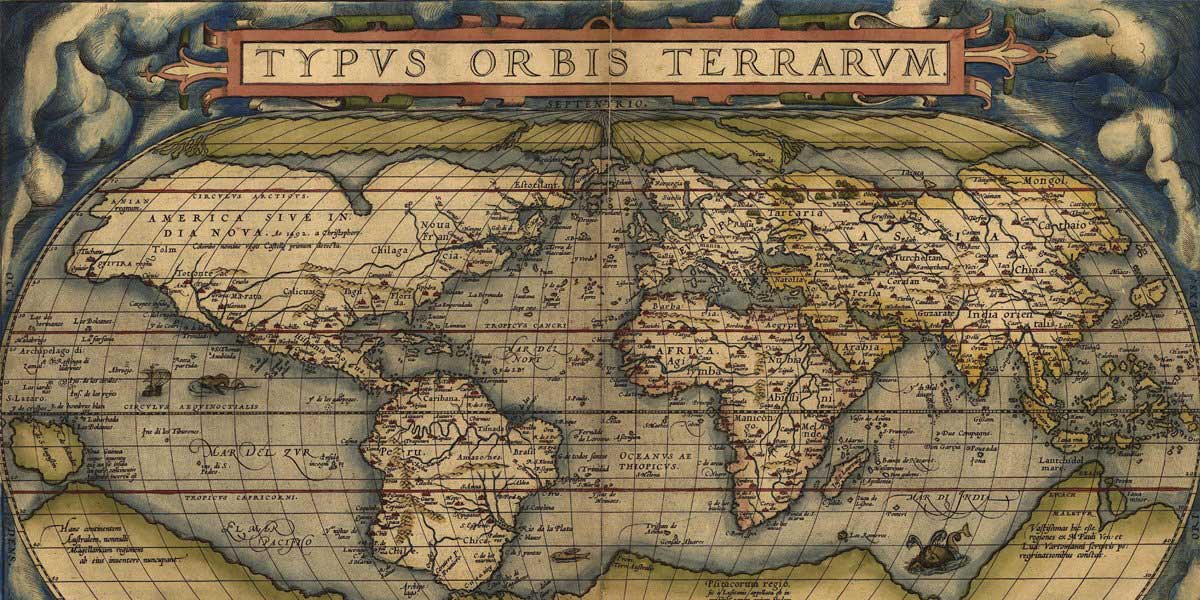View semester dates
2 years part-time

Immerse yourself in the sources and scholarship that will bring this dynamic period vividly to life.
Year of entry: 2026 (September)
Cultivate a wide-ranging and cross-disciplinary perspective on this exciting period.
Through seminars and workshops with leading academics, you'll develop methodical research and archival skills to complement your specialist knowledge in this fascinating field, from visual and material culture to the history of religion, politics and political philosophy via music and the history of space/performance.
You'll become part of the lively community of the Centre for Renaissance and Early Modern Studies (CREMS), interacting with peers from many different disciplines and bringing new perspectives to your work. Staff from eight departments come together to make CREMS the largest centre of its kind in the UK, and allows you a truly interdisciplinary experience.
We host weekly research seminars delivered by world-leading Renaissance and Early Modern academics. As well as this, you'll have your own postgraduate forum (Cabinet of Curiosities), which hosts everything from socials and film nights, to skills workshops, invited speakers, and conferences. By the time you graduate, you'll have a rich expertise in your chosen field, superbly positioned to pursue PhD research or develop a career in a wide range of other sectors.

York's MA in Renaissance and Early Modern Studies is so unique in combining such a large number of disciplines. I never thought I would be able to engage with such a wide range of fascinating subjects all in one place. I had no need to worry that I had never studied many of these subjects before, as all of the staff have been so supportive.
You'll take a mix of core and option modules. These modules are taken from one of our eight contributing departments: English, History, History of Art, Archaeology, School of Arts and Creative Technologies, Philosophy and Politics. Topics could range from historic building analysis to early modern fashion, and Shakespeare to the representation of women.
You'll also complete parts I and II of the Department of History's research training programme - this will equip you with the skills you need to complete an extended research project.
With support from the Research Training Programme, you'll later decide on a topic that you'd like to study to a much greater depth, and complete your dissertation.
Throughout your time at CREMS, you'll also have access to optional classes in Latin, palaeography and modern languages.
You will study three option modules. Our option modules vary from year to year, depending upon the interests and availability of staff. In previous years, options have covered topics such as:
The options available to you will be confirmed after you begin your course. For further information please get in touch.
Our modules may change to reflect the latest academic thinking and expertise of our staff, and in line with Department/School academic planning.
In summer, you'll complete a research dissertation of 12,000-14,000 words. With support from the Research Training Programme, you'll decide on your topic and submit a proposal during the spring. You'll then be assigned a dissertation supervisor, who will discuss and guide the direction of your research.
Recent dissertation titles have included:
Every course at York is built on a distinctive set of learning outcomes. These will give you a clear understanding of what you will be able to accomplish at the end of the course and help you explain what you can offer employers. Our academics identify the knowledge, skills, and experiences you'll need upon graduation and then design the course to get you there.

Although it was initially daunting stepping into an English or History of Art seminar, I have found this a welcome challenge that stretches me academically. It is surprising how much overlap there is between the disciplines, so you shouldn’t be afraid of a lack of knowledge when applying. Everyone brings a different and welcome perspective to discussions.
| Study mode | UK (home) | International and EU |
|---|---|---|
| Full-time (1 year) | £12,000 | £26,900 |
| Part-time (2 years) This is the year 1 fee. Fees for future years are subject to confirmation. |
£6,000 | £13,450 |
Students on a Student Visa are not currently permitted to study part-time at York.
For courses which are longer than one year, the tuition fees quoted are for the first year of study.
UK (home) or international fees? The level of fee that you will be asked to pay depends on whether you're classed as a UK (home) or international student. Check your fee status.
Find out more information about tuition fees and how to pay them.
There is no obligation to purchase books or other texts - all core texts and resources will be available in our library or online.
There are normally one or two field trips, which CREMS will usually fund, but you may be asked to pay an admission fee to sites visited.
You'll be expected to pay for your own photocopying.
Discover your funding options to help with tuition fees and living costs.
We'll confirm more funding opportunities for students joining us in 2026/27 throughout the year.
If you've successfully completed an undergraduate degree at York you could be eligible for a 10% Masters fee discount.
We are pleased to work with Chevening Scholars to offer funding for our Masters programmes. Chevening Scholarships provide one year of fully-funded postgraduate study in the UK for international (including EU) students. The scholarships are open to early and mid-career professionals who have the potential to become future leaders.
Most of your modules will consist of weekly two-hour seminars. The research training module will be taught through three-hour workshops. You will normally work in small groups of fewer than 20 students.
You'll have access to a wealth of resources, including the York Minster Library, the Borthwick Institute for Archives, the National Centre for Early Music. Some of the UK's finest surviving early modern houses, including Hardwick Hall, Bolsover Castle, Haddon Hall and Burton Agnes, are also only a short distance away.
Teaching will be based on Campus West. Many of our staff are based in the beautiful Grade ll listed Heslington Hall, a hub with space for events and student collaboration.
Teaching will be based on Campus West. CREMS and the wider interdisciplinary community of the Humanities Research Centre (including the Centres for Medieval Studies, Eighteenth Century Studies, and Modern Studies) are based in the beautiful Grade II listed Heslington Hall, a hub with space for events and student collaboration.
Our beautiful green campus offers a student-friendly setting in which to live and study, within easy reach of the action in the city centre. It's easy to get around campus - everything is within walking or pedalling distance, or you can always use the fast and frequent bus service.
You will submit an essay for each module of approximately 3,500-4,000 words. You'll also have the opportunity to submit formative essays, which do not count towards your final degree mark, but will give you valuable feedback for you to apply to your final assessed essays.
The research training module is assessed by a 1,500-word dissertation proposal, plus a 1,500-word annotated bibliography, on a pass/fail basis.
The research, analysis and presentation skills that you'll gain from this course are applicable to a diverse set of careers, and will also leave you well-prepared to continue on to PhD study. Graduates of this course have gone on to work in a wide range of sectors, including journalism, heritage, research, education, law, libraries, museums and government.
| Qualification | Typical offer |
|---|---|
| Undergraduate degree | 2:2 or equivalent in a relevant subject. |
| Other international qualifications | Equivalent qualifications from your country |
If English isn't your first language you may need to provide evidence of your English language ability. We accept the following qualifications:
| Qualification | Minimum requirement |
|---|---|
| IELTS (Academic and Indicator) | 6.5, minimum 6.0 in each component |
| Cambridge CEFR | B2 First: 176, with 169 in each component |
| Oxford ELLT | 7, minimum of 6 in each component |
| Oxford Test of English Advanced | 136, minimum 126 in each component |
| Duolingo | 120, minimum 105 in all other components |
| LanguageCert SELT | B2 with 33/50 in each component |
| LanguageCert Academic | 70 with a minimum of 65 in each component |
| Kaplan Test of English Language | 478-509, with 444-477 in all other components |
| Skills for English | B2: Merit overall, with Pass with Merit in each component |
| PTE Academic | 61, minimum 55 in each component |
| TOEFL | 87, minimum of 21 in each component |
| Trinity ISE III | Merit in all requirements |
For more information see our postgraduate English language requirements.
You may be eligible for one of our pre-sessional English language courses. These courses will provide you with the level of English needed to meet the conditions of your offer.
The length of course you need to take depends on your current English language test scores and how much you need to improve to reach our English language requirements.
After you've accepted your offer to study at York, we'll confirm which pre-sessional course you should apply to via You@York.
Get in touch if you have any questions



